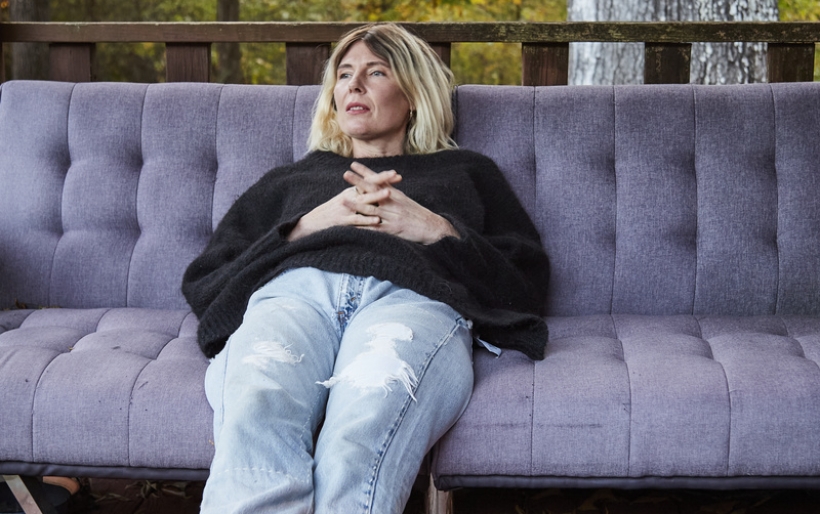Sean Fennell: You made both this record and your last record, No Medium, with Mowed Sound serving as your backing band. Was this the first time you’ve worked with the exact same group of collaborators for two consecutive projects like this?
Rosali Middleman: You know, it’s fun to experiment with different players and have each record be its own project, but after No Medium and touring that record a bunch, it really felt like we’d become a band. They are incredible players and we have so much synergy and fun together that I knew I wanted to make another record and see where we could take it. I’m in this era where it feels more like we are a band that creates the music together, even though I still write the songs.
SF: Correct me if I am wrong, but you didn’t really have much of a personal relationship to the band before the last record, right?
RM: Not too much. When I was in Long Hots I did a two week tour with David Nance group, so that’s when our relationship first formed. In that concentrated time we got to know each other as well as you can know somebody riding in a van all day and playing shows. But yeah, I didn’t really have the kind of deeper connection I do now. So I think this record has a lot more freedom and looseness because we are so comfortable with each other.
SF: You mentioned relinquishing control a bit during this record. I imagine having been someone who has worked on a ton of different projects, whether in other bands or playing on other people’s records, it helps to have been on the other side of that equation.
RM: For sure. When you are on the participant’s side and maybe not the writing side, it feels good when somebody welcomes you into their world and trusts you for the way you might approach their work. As a player, you then become generous in the way that you give yourself over to the creative process and the song and the music. With my band, I wanted them to feel like they are just as important in the process. There is a lot of love that goes into it and I think that is evident to the people listening to the music. The control aspect of it for me was just about letting go of the songs themselves. For previous records, I would have this very specific idea about what I wanted from the song and those things were much more set in my mind before going into recording sessions. Where with this one, they were much more in their infancy. I had the melodies, and I knew what the song was about, but as far as where we were going to take it and where the sonics would end up, that I left open. That was hard. It’s like letting your children out of the nest and trusting that the people involved are going to nurture it as well.
SF: Do you hear that difference in the way you were able to collaborate when you listen to this record?
RM: Definitely and even in how we approached it. We recorded in the same place, which is Jim Schroder’s basement, but this time we were sitting in a circle and playing through the songs to get the feel and kind of feeling things through organically. Last time we did some of that but it was mostly Jim and I tracking the parts, building it more traditionally. This time around it was more collaborative with everyone that was playing.
SF: This record really has this raw and energetic feeling to it. Are you typically meticulous about the recording process, or do you favor something more natural?
RM: Definitely something more natural. I do like adding the flourishing bits at the end to level it up a bit from just a band playing a song. I get meticulous in the mixing part and the sonics, adding these little sparkles on it, but I do really like the organic feeling as the groundwork for the songs. Also, when we play it live it’s not that different in spirit. We’re interpreting the songs and everyone is very open to that interpretation in that live, raw context.
